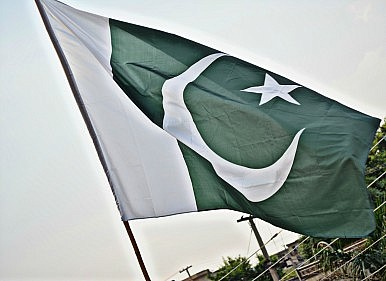By Umair Jamal
 A few days ago, a court in Pakistan barred the government from arresting Hafiz Saeed, the head of the Jamaat-ud Dawa (JuD), a suspected militant organization known for targeting Indian interests. After the Financial Action Task Force (FATF)’s decision to put Pakistan on the so-called grey-list of nations that were not doing enough to combat terrorism financing, the government in Pakistan has been considering different policy options to isolate several domestic militant groups, including JuD.
A few days ago, a court in Pakistan barred the government from arresting Hafiz Saeed, the head of the Jamaat-ud Dawa (JuD), a suspected militant organization known for targeting Indian interests. After the Financial Action Task Force (FATF)’s decision to put Pakistan on the so-called grey-list of nations that were not doing enough to combat terrorism financing, the government in Pakistan has been considering different policy options to isolate several domestic militant groups, including JuD.
Clearly, Pakistan’s addition to the grey-list has put the country’s recent counterterrorism efforts under scrutiny. The government in Pakistan has been making efforts to tighten its counterterrorism efforts further to avoid the practical implications of the FATF’s decision.
However, the looming confrontation between the country’s judiciary and the government is likely to fracture the latter’s efforts, which have been aimed at containing suspected militant groups. The consequence of this continuing scuffle between Pakistan’s two major institutions may end up putting Islamabad’s name on the FATF grey list permanently with the financial implications choking the country’s economy.
For some time, the ruling party in Pakistan and the country’s highest judiciary have accused each other of malpractice, nepotism, and working against the country’s national interests. The government for its part accuses the judiciary of being exploited by the country’s powerful military to weaken the government.
With the country’s next general election only months away, the ruling appears to have shaped an electoral agenda that calls for a mass vote against “judicial overreach” and respecting the sanctity of the vote. On the other hand, the country’s highest court has openly accused the ruling party of mass corruption, misgoverning, and using institutional powers to further its political and business interests.
This confrontational situation has created a deadlock when it comes to the government’s decision to enhance its counterterrorism efforts to evade growing international pressure in the wake of the FATF’s decision. The court’s recent verdict to block the government’s decision to place JuD’s head under house arrest shows that internal institutional clashes in Pakistan poses a serious challenge to any likely national consensus against terrorism.
The court’s decision, of course, was welcomed by JuD. In this regard, the JuD’s leadership has termed the government’s policy an attempt to appease the United States for its personal political and economic gains, rather than that for the country’s interests.
JuD’s open celebrations are creating a dangerous narrative in the country’s fight against extremism: by obstructing the government from taking action against the JuD, the court has not only legitimized militant group’s narrative of jihad but has also indirectly further undermined the state’s writ. If a militant organization’s narrative has the support of a major state institution, it only emboldens extremist attitudes and the forces that thrive on the state’s internal divisions.
While the government may have been able to push out militants from the country’s tribal regions, the former continues to lack a credible counterterrorism narrative that it can use to initiate robust efforts to deal with insurgent groups based in mainland Pakistan.
Militant groups operating under the guise of charitable organizations take advantage of the state’s internal divisions and bad governance, which only increases their level of popular support and legitimizes their narrative in society. For instance, JuD runs a chain of seminaries, schools, hospitals, publishing houses, and ambulance services all across Pakistan. The group has been able to establish a deep infrastructure base in Pakistan due to the state’s failure to provide even the most basic services that people practically expect.
Arguably, civilian governments in Pakistan have not been able to do well because of the judiciary’s interventionist decisions, which have only delegitimized elected governments and their policies. The court’s decision to allow Saeed’s network to operate freely will surely create problems for the elected government when it comes to taking action against JuD and other extremist groups. If Pakistan is to survive growing international isolation, the country must not only take decisive action against insurgent groups such as the JuD, but should also demonstrate to rest of the world its firm determination to do so.
No comments:
Post a Comment